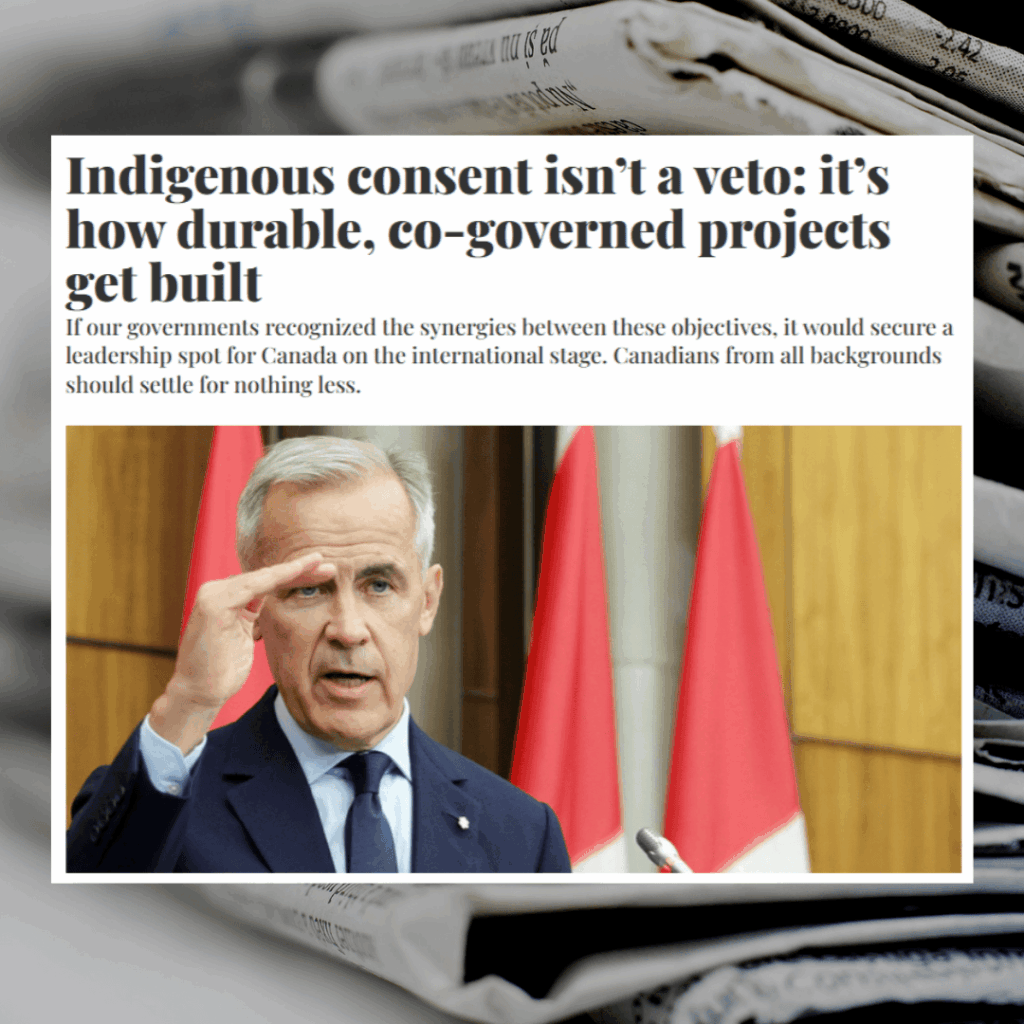The Hill Times: Indigenous Consent Isn’t a Veto — It’s How Durable, Co-Governed Projects Get Built
In passing recent “nation-building” laws (for example, the federal Bill-C5 and Bill 5 in Ontario ), governments have weakened environmental safeguards while neglecting their duty to consult with Indigenous peoples before approving development projects. Resistance to these laws from First Nations has taken a variety of forms, including protests, communications, and legal challenges.
Nature Canada, West Coast Environmental Law, Environmental Defence and the David Suzuki Foundation support these challenges, noting that all Canadians have a role in holding governments accountable for upholding Indigenous rights. Pursuing prosperity, they add, need not be opposed to respecting Indigenous rights and environmental protections. On the contrary, these objectives work best in unison. If our governments recognized the synergies among these objectives, it would secure a leadership spot for Canada on the international stage.
“The recent suite of poorly conceived and hastily passed laws in Canada (Bill 5 in Ontario, Bill 15 in British Columbia, and the federal Bill C-5) have not only weakened environmental safeguards; they also, to varying degrees, have sidelined the processes that traditionally trigger the duty to meaningfully consult with First Nations before approving projects that could adversely affect Indigenous rights.” — Emily McMillan, Jessica Clogg, Tim Gray and Rachel Plotkin
The Hill Times article (paywall) →
Commit to a Better Path
Join the future of nature stewardship! Find out how nature lovers can support Indigenous leadership across the country.




